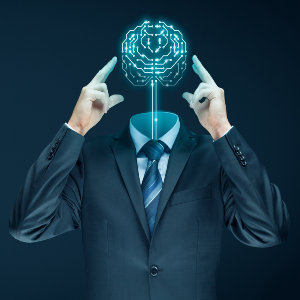
Artificial Intelligence (AI) seems to have reached its peak, and yet it is still growing and reaching even the most remote parts of the world.
There are countless benefits to this technology, including life-saving tools and systems that function with automated AI algorithms.
However, some people are skeptical about the widespread and free use of AI due to some valid concerns. Is artificial intelligence a problem, or an opportunity for the future?
Here are several takes on the matter that may help you come to your own decision on whether this technology is problematic or the future.
Improve Business Decision
For businesses, AI will bring many benefits that go beyond automating tasks. It will also play a role in improving business decisions in almost every sphere. For example, data governance in businesses is crucial in the marketing sphere for aligning products with customer needs or for improving existing offerings to address consumer problems.
According to a leading technical essay help service, in data governance, AI will play a bigger role in analyzing large amounts of consumer data that businesses can use to make marketing efforts fruitful. But the major benefit that AI will bring for future businesses is time savings that’ll translate into quicker profits as analyzing large data sets will be quicker.
Better Healthcare
In the healthcare sector, AI is being used to develop advanced radiology equipment that’ll expand the number of non-invasive diagnostics that doctors can run as many still require tissue samples. Having radiology equipment this precise and detailed will allow clinicians to understand tumor behavior better and develop better-targeted treatments. AI imaging equipment will benefit regions that lack radiologists by automating diagnostic procedures.
Expert writers and researchers for an online assignment help service say that healthcare professionals who already have difficult workloads often have to deal with filing out electronic health records, causing them cognitive overload and burnout. AI developers are working on solutions that’ll make filling these records easier, like automating the process with dictation and
Minimize Errors
When people think about AI and accuracy, they usually reflect on the last clumsy conversation they had with a chatbot. What they don’t see is how the algorithm is using these interactions to produce minimally better outcomes that’ll accrue until the AI reaches perfection in the future.
Even though AI will start producing perfect results on context-driven tasks much later, in rule-driven tasks, AI will excel earlier as it can practice these faster. That means AI algorithms will be able to reduce human errors in repetitive tasks quickly by automating them. AI is already 30% more accurate than physicists at analyzing dark matter.
Deepen Socio-Economic Inequalities
The fact that AI will become more accurate than humans at performing repetitive tasks puts a large number of economically disadvantaged people with lower-level skills at risk. A big concern about job losses for lower-skilled people is that research shows that people in this demographic rarely have the resources to retrain themselves for new jobs.
Professions that are most at risk include retail jobs like store clerks that can get replaced with self-service kiosks, shelf stockers, and inventory management algorithms. These low-skill jobs are also usually taken by students too which will make the financial strain on these individuals intense when you consider how student debt is an ongoing problem.
Private Security Threats
Automation can prove to be a threat to private security as AI systems process data faster than any human ever can. As a result, inefficiencies in personal security systems, either in the cybersphere or in real-life, can easily be identified.
This advanced data processing can lead to cyber breaches on personal devices and physical safety endangerment. For example, when using AI systems, daily habits can easily be logged and home burglaries could be easier to conduct. Also, home security systems can be scoped out and weakened using AI-powered algorithms.
Autonomous Weapons Threat
You have probably seen this concept in sci-fi action movies where weapons lock in on a target or are automated in other ways. The truth is, these weapons are not fiction anymore as they are being developed by governments and private organizations.
Although they remain banned under the US Policy on Lethal Autonomous Weapons Systems, these systems do pose a danger to society. This could fuel a lot of skepticism into AI at large since these systems predominantly depend on this kind of technology. However, these weapons could also be used for the betterment of country defenses if they are not in the wrong hands.
Conclusion
AI is a great opportunity for the future and a catalyst for real radical economic transformation. The growth potential of many industries have been improved by the use of AI, but this technology isn’t without its pitfalls. However, malicious use of AI is something that cannot be prevented. The good news is that the risk can be mitigated to a certain extent so that this technology is used meaningfully for the most part.
